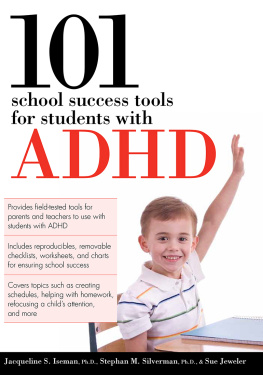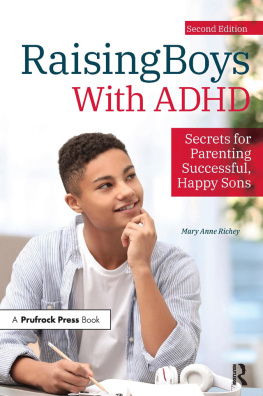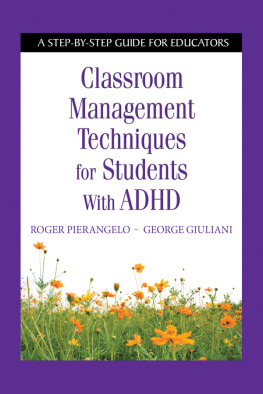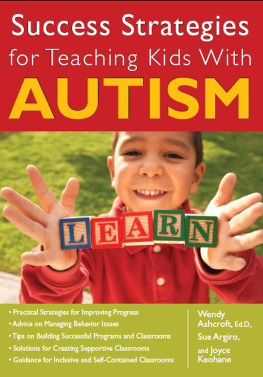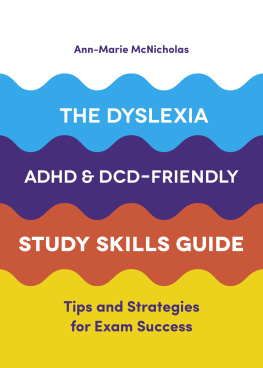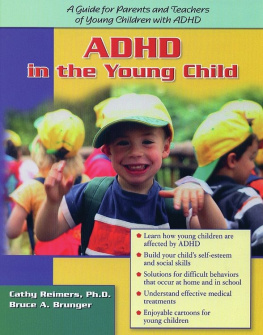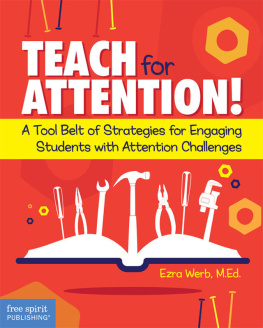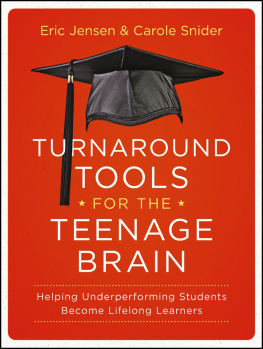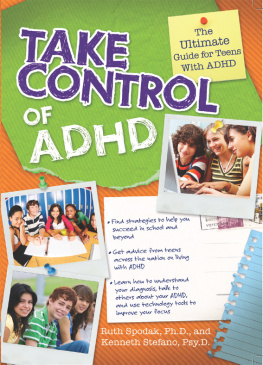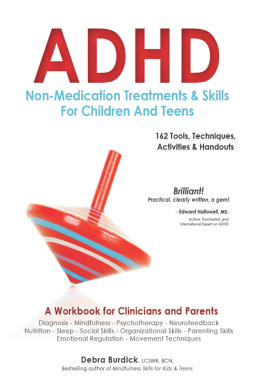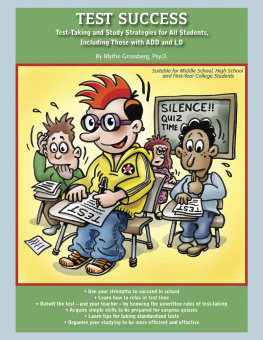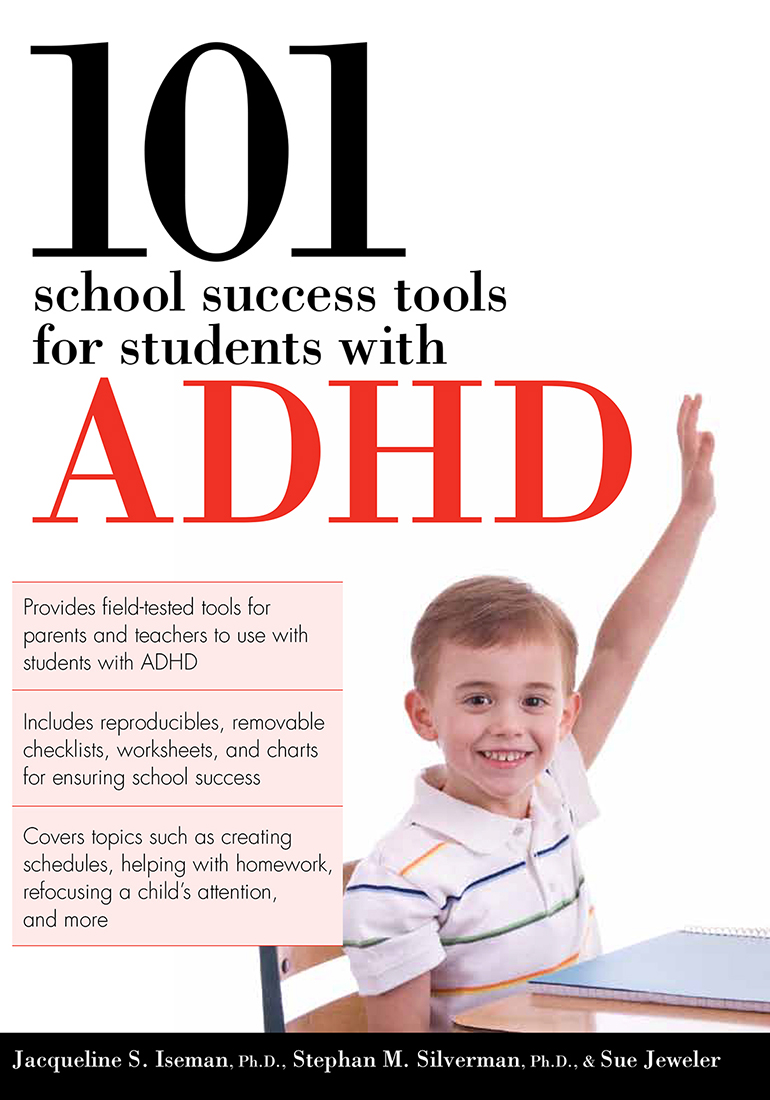


Copyright 2010, Prufrock Press Inc.
Edited by Lacy Compton
Cover and Layout Design by Marjorie Parker
ISBN-13: 978-1-59363-532-9
No part of this book may be reproduced, translated, stored in a retrieval system, or transmitted, in any form or by any means, electronic, mechanical, photocopying, microfilming, recording, or otherwise, without written permission from the publisher.
At the time of this books publication, all facts and figures cited are the most current available. All telephone numbers, addresses, and website URLs are accurate and active. All publications, organizations, websites, and other resources exist as described in the book, and all have been verified. The authors and Prufrock Press Inc. make no warranty or guarantee concerning the information and materials given out by organizations or content found at websites, and we are not responsible for any changes that occur after this books publication. If you find an error, please contact Prufrock Press Inc.

| Prufrock Press Inc.
P.O. Box 8813
Waco, TX 76714-8813
Phone: (800) 998-2208
Fax: (800) 240-0333
http://www.prufrock.com |
Dedication
In memory of Milton V. Silverman (19172009).
In loving memory of Rose Cohen, for always focusing attention on what is genuinely important in life.
To Larry, for his constant attention.
To our wonderful editor, Lacy Compton, for her wise counsel and extraordinary attention to detail.
Contents
List of Tools
: Planning Facilitation
: Calming Techniques
: Private Speech
: Suggested Breaks
: Self-Monitoring Chart
: Interrupt Passes
: Time Management
: Time Estimation
: Organization of Materials
: Organizational Technology Checklists
: Daily Routine at School
: Task Analysis for Assignments
: Graphic Organizers
: Smartphones
: Addressing Homework Issues
: Creating an Appropriate Homework Environment
: Strategies for Checking Over Homework
: Check InCheck Out Technique
: Using Technology for Homework
: Skills for Using a Textbook
: Strength-Based Instruction
: They Did It! So Can I!: Famous People With Learning Difficulties or ADHD
: Stories of Struggles That Led to Success
: Catch a Student Being Good
: Verbal Encouragement
: The Animal School Fable
: Goal Development
: Behavioral Contract
: Five Finger Method of Behavioral Modification
: Behavioral Interventions Checklist
: STOP Method: Stop, Think, Options, Plan
: Effective Instruction Checklist
: Adaptations and Accommodations
: Adaptations/Accommodations for Overcoming Obstacles Checklist
: What Works/What Doesnt Charts
: Bordering on Excellence Tools
: Memory Strategies
: Self-Advocacy
: Parent and Student Interview
: How ADHD Feels to Me
: Action Plan for Educators
: Action Plan for Parents
: Action Plan for Students
: Written Work Checklist
: Writing Skills Rubric
: Differentiation
: Collaborative Problem Solving
: Cueing Checklist
: Proximity Checklist
: Working With Others Checklist
: Teaching Comprehension
: Multiple Intelligences
: Communication Template
: Listening Skills
: Evaluation Checklist
: Tracking ADHD Symptoms
: Functional Behavior Assessment
: Teacher Observations About Students on Medication
: IEP and 504 Plan Meetings
: IEP and 504 Plans Checklist
: Intervention Plan
: Teacher Conferences
: School-Home Report Card
: Daily Communication Log
: Report to Parents
: Parent-Teacher Conference Guide
: Identification Data Gathering Tools
: Teacher and Parent Resources
: Collaborating With the Students Pediatrician
: Collaborating With the Students Mental Health Therapist
: A 12-Point Multimodal Treatment Plan for Children and Adolescents With ADHD Annotated Checklist
: DSM-IV Criteria
: Coexisting Conditions
: Working With Your Pediatrician
: College Planning
: College Selection
: College Strategies Checklist
: College Skills Checklist
: Obtaining Assistance in College
: Quieting the Mind With Yoga: Yoga as an Adjunct for ADHD Management
: Encouraging Achievement at Home
: Other Conditions That Resemble ADHD
: Understanding Statistical Terms in Your Childs Testing Reports
: Sample Letter to Request Accommodations or Services
Introduction
CHILDREN and adolescents with ADHD often struggle with their day-to-day activities. Inattention can have a profound effect on learning, personal relationships, productivity, personal safety, and self-esteem (Silverman, Iseman, & Jeweler, 2009). The more information we know and understand about ADHD and its impact on individuals, the better able we are to create a thoughtful, collaborative, and effective approach that successfully addresses the strengths and needs of those who deal with their attentional challenges every day.
It is estimated that more than half of children with the primary diagnosis of ADHD have school-related struggles. Specifically, children with ADHD have significantly higher lifetime rates of school dysfunction and lower achievement than their peers. These difficulties include a higher likelihood of grade repetition, need for academic tutoring, or enrollment in a special class. Children with ADHD also are more likely to exhibit impairments in reading and academic achievement as well as higher rates of learning disabilities and school dysfunction (Biederman et al., 1996).
There also appears to be a long-term impact associated with these academic struggles during childhood. Childhood ADHD places individuals at a relative risk for an educational disadvantage throughout life. In adulthood, children diagnosed with ADHD complete less formal schooling than their peers. Although nearly one quarter of children with attention deficits in one study did not complete high school, only 2% of their peers did not complete high school. In addition, while 35% of individuals without ADHD complete a college program, only 5% of students with ADHD complete college (Menhard, 2007).
101 School Success Tools for Students With ADHD provides support materials and the guidance necessary to assist teachers and parents as they empower students to become successful learners. A collection of worksheets, forms, checklists, charts, websites, and other tools are included as reproducible pages.
This book is a companion to School Success for Kids With ADHD and contains helpful aids to the teacher and parent as part of a multimodal effort for each child with ADHD. (However, the materials can be used on their own without the companion title.) We strongly believe that the information and tools provided will significantly address the issues faced by individuals with attentional issues. It is important that all of the stakeholdersparents, teachers, other professionals, and the students themselveswork together to create a successful school experience.
Next page
